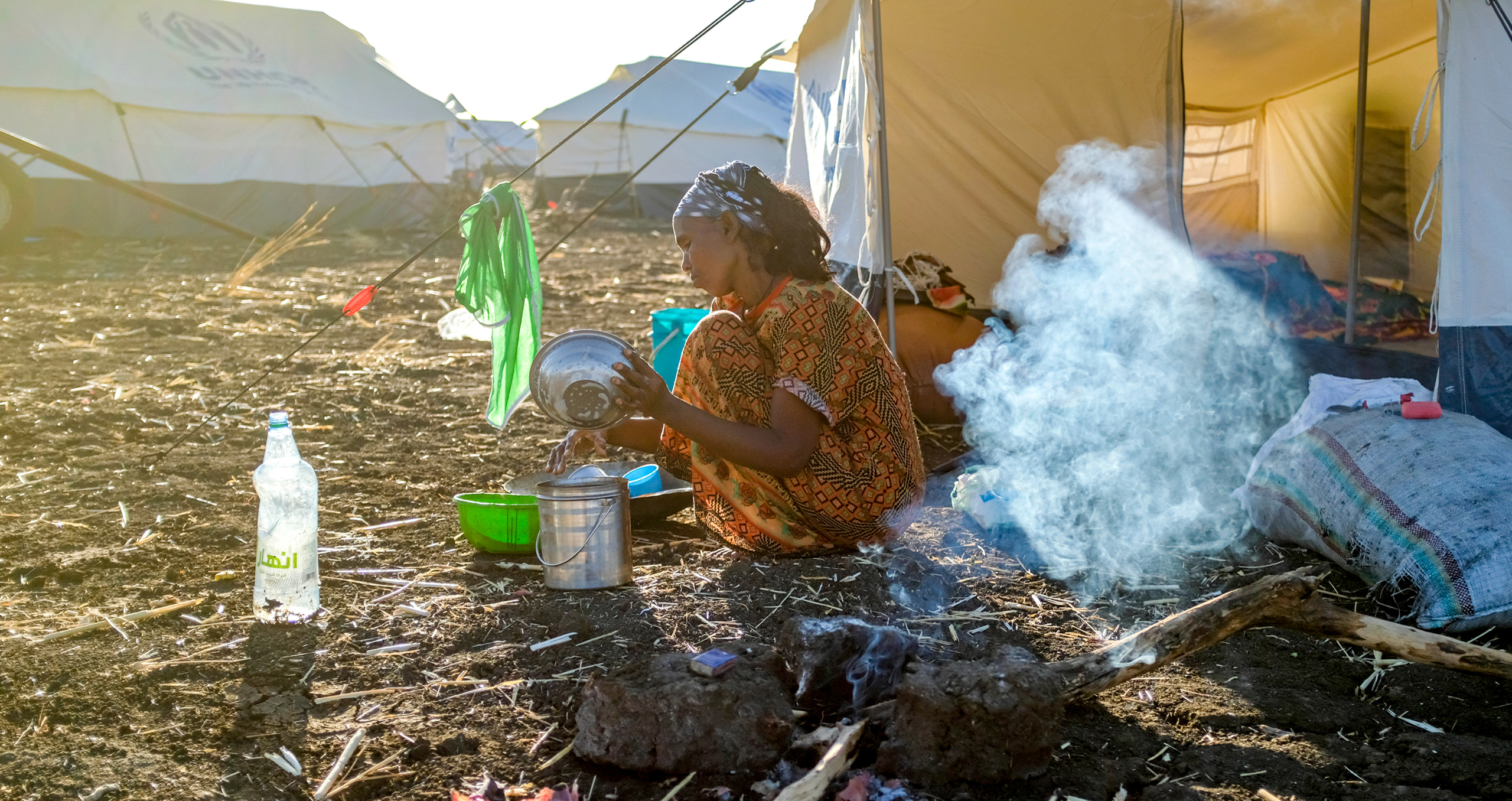Ethiopia: civil war, deaths, rapes, and refugees

Ethiopian woman cooking her meal in Um Rakuba refugee camp in Sudan. By Amors Photos (Shutterstock, 2021).
Ethiopia: civil war, deaths, rapes, and refugees
At the beginning of November 2020, a deadly conflict erupted in the region of Tigray, in northern Ethiopia. This conflict has forced 55,00 people to seek refuge in Sudan, bringing the number of those in urgent need of food to 4.5 million (OCHA, 2021a; Walsh, 2021). Hundreds of people have been killed but the actual number of victims is still unknown. Multiple rapes have been reported and the local health system has nearly collapsed in the last months (OCHA, 2021b).
The conflicts started at the beginning of November, when Prime Minister Abiy Ahmed ordered an offensive against the regional ruling party, the Tigray People’s Liberation Front (TPLF), accusing them of orchestrating a military attack against a government military base with the aim of stealing weapons (Walsh & Marks, 2020). Tensions have always been running among the central government and the TPLF party. While the former, guided by Mr. Abiy, is aiming for a national centralization of powers, the latter is favoring an increase in the autonomy of regional governments (Walsh & Dahir, 2020). Eritrea, one of the countries sharing a border with the Tigray region, decided to join in the conflict supporting the central government while soldiers from the Northern Command of the Ethiopian military decided to side with the TPLF (Walsh & Dahir, 2020).
Between November 28-29, the Eritrean troops entered the Ethiopian city of Axum in the Tigray region, killing hundreds of civilians and carrying out a house-to-house search for TPLF members, executing both adults and young boys (Amnesty International, 2021a). In the aftermath of the conflict, Eritrean soldiers shot at those who tried to remove the corpses from the streets (Amnesty International, 2021b). The dead bodies remained unburied for days and many were eaten by scavengers, such as hyenas (BBC, 2021). Amnesty International declared that during the Axum massacre both Eritrean and Ethiopian troops committed a number of crimes against humanity as well as war crimes (Amnesty International, 2021a). Massacres were also perpetuated by the Eritrean troops in November through a mass killing at the Maryam Dengelat church (Arvanitidis et al., 2021). The Tigrayan forces have also been accused of mass killings, as hundreds of civilians were killed in the town of Mai Kadra between November 9-10 (Burke, 2021). Indiscriminate shelling also took place in November in the towns of Mekelle, Humera, and Adigrat, all situated in the Tigray region (UN News, 2021a).
Since November, more conflicts have emerged. At the end of January between 150-300 men were killed in a village near the city of Dela (Burke, 2021). At the beginning of February, the United Nations (UN) received information about the killings of 8 protestants in Adigrat, a town situated in the North-East area of Tigray, Mekelle, Shire, and Wukro (OHCHR, 2021). In mid-February, habitants of Adigrat reported the noise of heavy artillery firing for days. Similar reports have come from the towns of Adwa and other locations (Burke, 2021).

Article by
Cristina Miceli

Categories
Africa, Categories, Countries, Ethiopia, Human rights, News, Refugees


